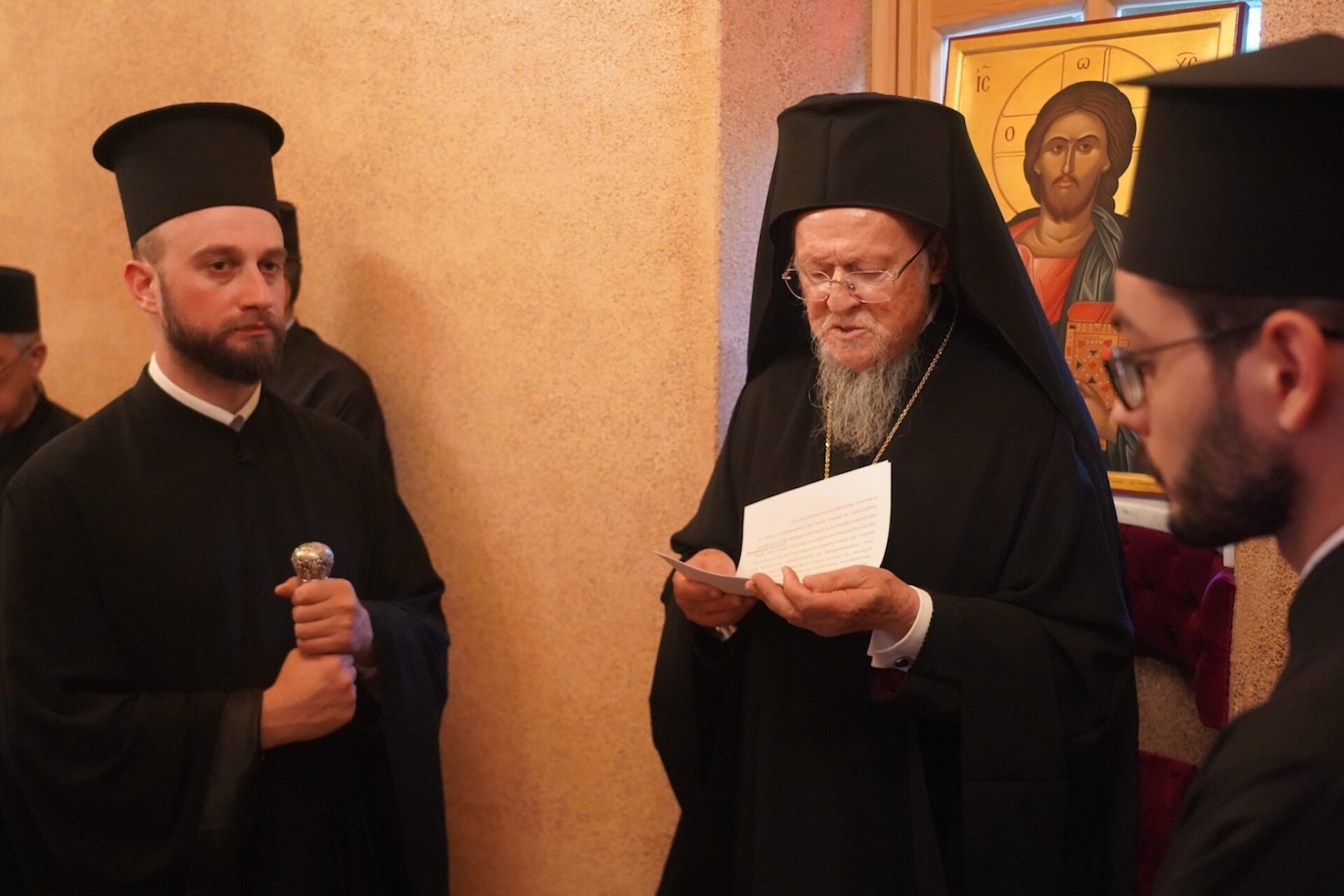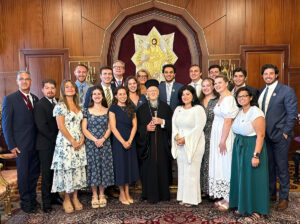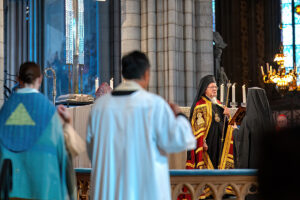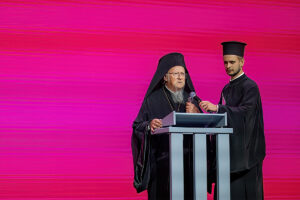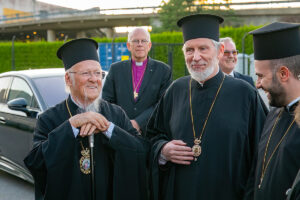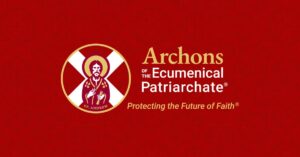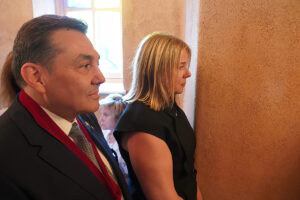On Tuesday, August 5, 2025, His All-Holiness Ecumenical Patriarch Bartholomew commemorated the reopening of the renovated Chapel of the Skete of the Transfiguration of the Savior Christ, in Halki of the Princes’ Islands, officiating at the service of the Lesser Blessing of the Waters (Agiasmos), followed by Great Vespers. Then he delivered a profound and insightful address on the Feast of the Transfiguration of our Lord and Savior Jesus Christ, demonstrating how it guides us in our understanding of the sufferings of this world, and what human beings can do about them.
His All-Holiness pointed out that on Mount Tabor, according to sacred scripture, the disciples beheld the Lord “in another form.” He then explained that “when one has entered into this realm of theoria, contemplation of Jesus in another form, they are liberated from the bondage of necessity and suffering.” Yet on earth, all too many people have not experienced this liberation: “But what about the others? The many? They are still anxiously waiting on the slopes of Tabor for the Transfiguration to be delivered from pain, sickness, and need, just like our brothers and sisters in long-suffering Gaza.”
This suffering is, as the Ecumenical Patriarch explained, the opposite of the transformation of human nature in Christ of which the Transfiguration is a foretaste. He explained: “We watch with horror the scenes of innocent civilians, of children dying from hunger, and of captives digging their graves. This is truly a shame for the human race, for all of humanity, as I said yesterday as well! To be more precise, these images reflect nothing human. They are, quite literally, inhuman!”
The transfiguration of human life on earth, as His All-Holiness elucidated, never came about as the result of violence or war. He said: “We know very well that it is not easy to alter the course of reality, the course of history. Yet the Church never abandons hope, nor does it cease in its efforts to transfigure the world. For the world is not transformed through violence or war. Look at history and you will see: whatever great and noble has been accomplished was always achieved by the few, those who have truly shaped history. The world is always transfigured by the few, who are nonetheless countless; by the little leaven that ‘leavens the whole lump’ (Galatians 5:9); by the saints.”
His All-Holiness emphasized that “the saints have shown us, and continue to show us, the Church in another form, in its God-like form, as established by its Divine Founder.”
The Ecumenical Patriarch also called upon all members of the Church to live in a manner that is transfigured by the love of Christ: “For the world to be properly transfigured in Christ, it seeks to behold even today a Church that is itself transfigured. And our supreme responsibility as Christians, even if we are but the small leaven, is to be transfigured through our love and offering to our fellow human beings, so that we may become an example of common witness and common service to the modern world.”
Referring to the small community of Greek Orthodox Christians in Constantinople, the Ecumenical Patriarch stated: “We, the Orthodox Romioi, have never valued or based our existence on numbers, for our history teaches us that ‘the good is not in the many, but in the good the much is found’ and that God is able ‘from these stones to raise children to Abraham.’” (Matthew 3:9). He concluded: “Truly, in the history of humanity, nothing great or lofty has ever been achieved without love and sacrifice. And however few we may be today, all the more love and all the greater sacrifices are needed, so that we may preserve with dignity all that our forefathers and the ages have entrusted to us.”
The following day, Ecumenical Patriarch Bartholomew presided over the Divine Liturgy for the Great Feast of the Transfiguration of our Lord and Savior Jesus Christ at the Patriarchal and Stavropegial Monastery of the Transfiguration on Prote of Princes’ Islands. In his address there, he emphasized that “for us Orthodox Christians, there is nothing in life more significant than our connection to Divine Worship. It is there that we experience God’s presence, become one body and one community, and receive a foretaste of the heavenly Kingdom. It is also from there that we draw inspiration and strength to bear witness in the world to love, solidarity, and peace.”
It is through the Church’s Divine Worship that human beings are transfigured in Christ. That is why, for the Archons of the Ecumenical Patriarchate, that worship is the heart and center of all our labors on behalf of our Holy Mother Church and religious freedom for all people.
